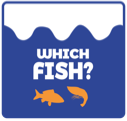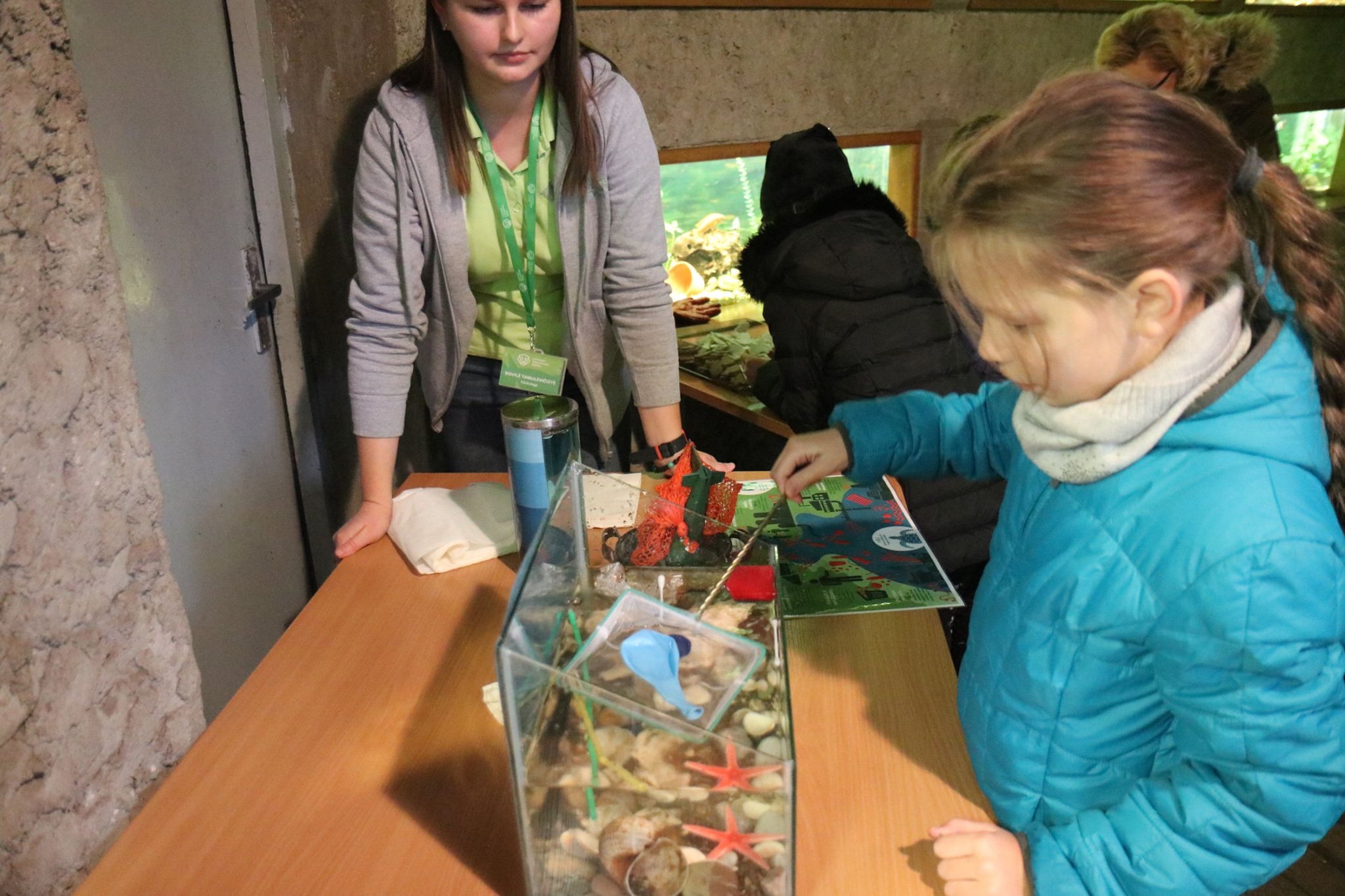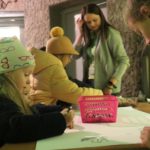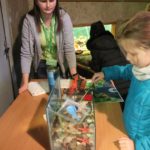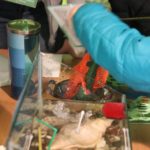By Lina Gediminė, Lithuanian Zoological Gardens (Lithuania)
On October 6th, the Lithuanian Zoological Gardens hosted a World Animal Day event, where children were involved in an educational activity about marine pollution. In accordance with the new EAZA campaign “Which Fish?”, educators introduced visitors to the three primary components of the campaign: human sustainable consumption, sustainable animal feed and collection planning for sustainable aquatic species. While thinking about fish and other seafood that people and animals eat, it is impossible not to consider marine pollution. Marine pollution also causes the extinction of aquatic species.
Did you know that thrown-away plastic fragments into smaller and smaller pieces, but never goes away? Using a jar that pictures the marine food chain on it, educators were able to show how microscopic pieces of plastic gets into the smallest sea creatures and travels through the food chain.
By the way, plastic is not the only thing that pollutes our oceans and seas! During the educational presentation, an aquarium was used to symbolize the oceans, which were full of different types of trash. Every piece of trash had a deeper meaning of harm to marine life. For example, a small piece of netting symbolized over fishing and lost fishing equipment at the sea. A sunken toy helicopter was used as a tool to tell a story about oil spills from ships, planes or even oil dredging platforms after various accidents. Children cleaned it up, and after such a good job, they were praised and given prizes to encourage them to continue taking care of nature.
